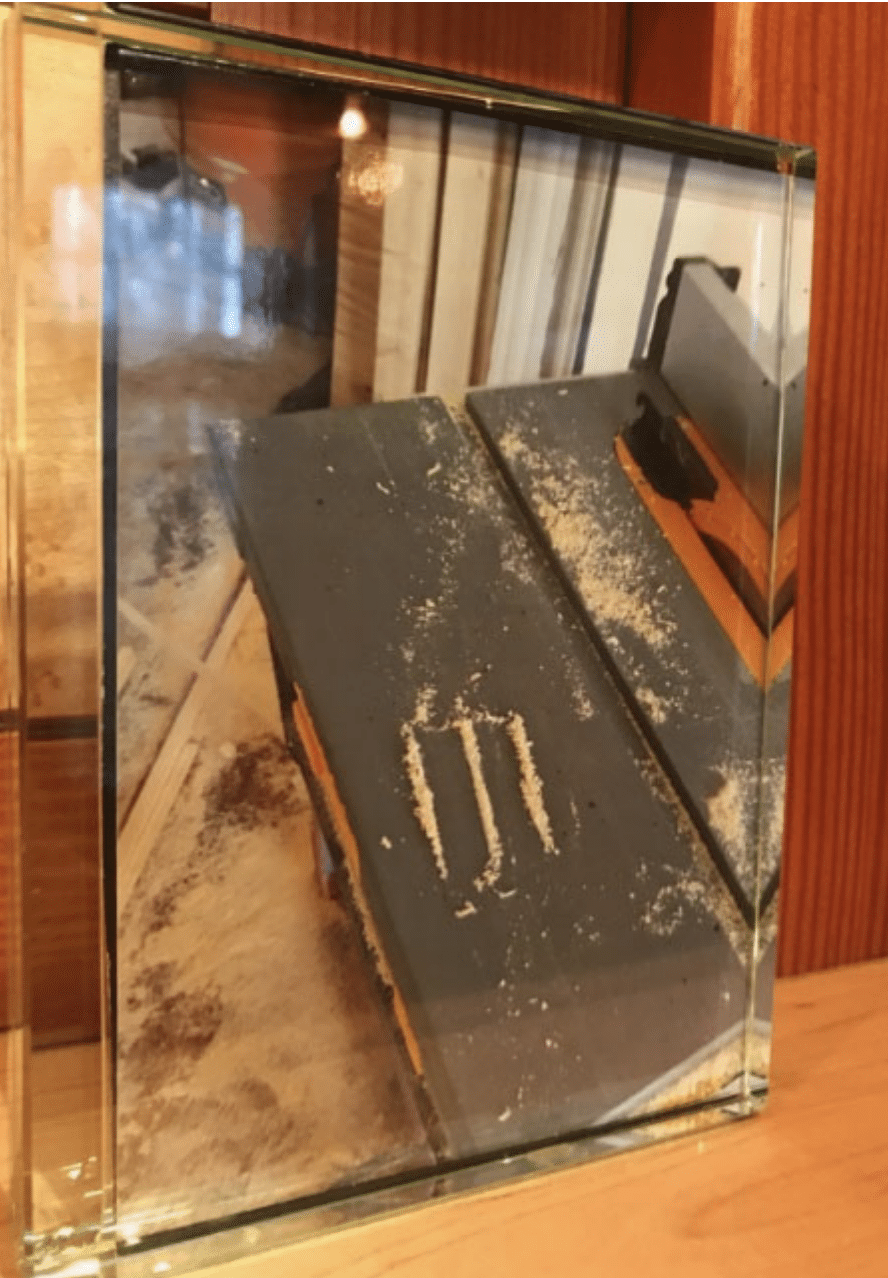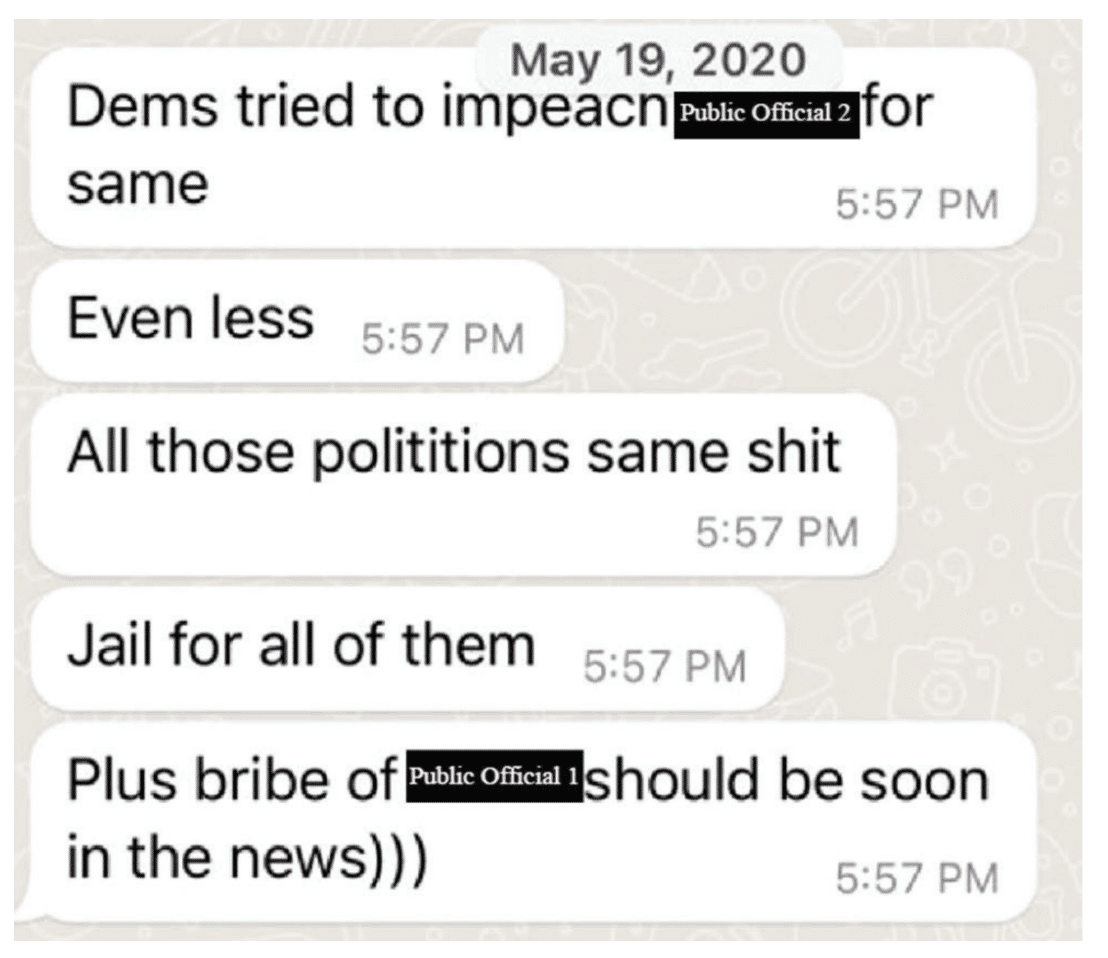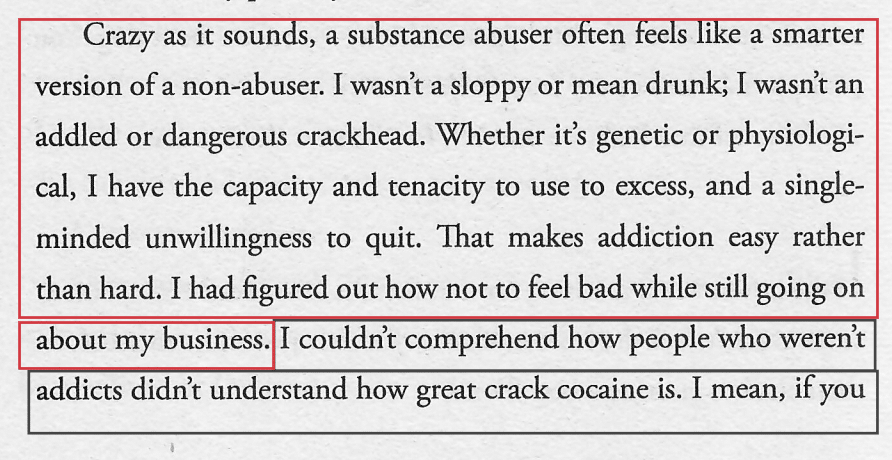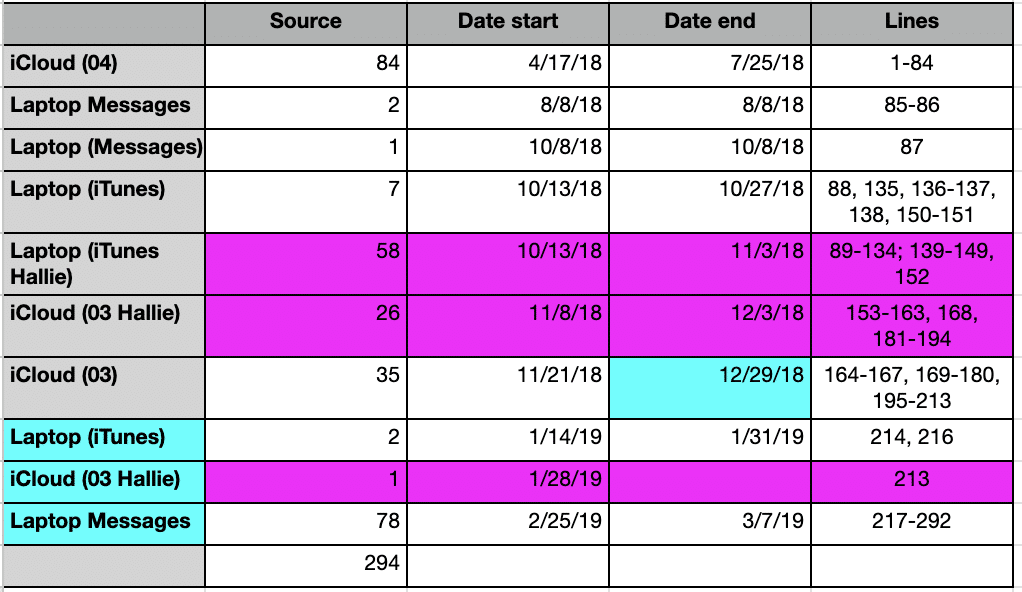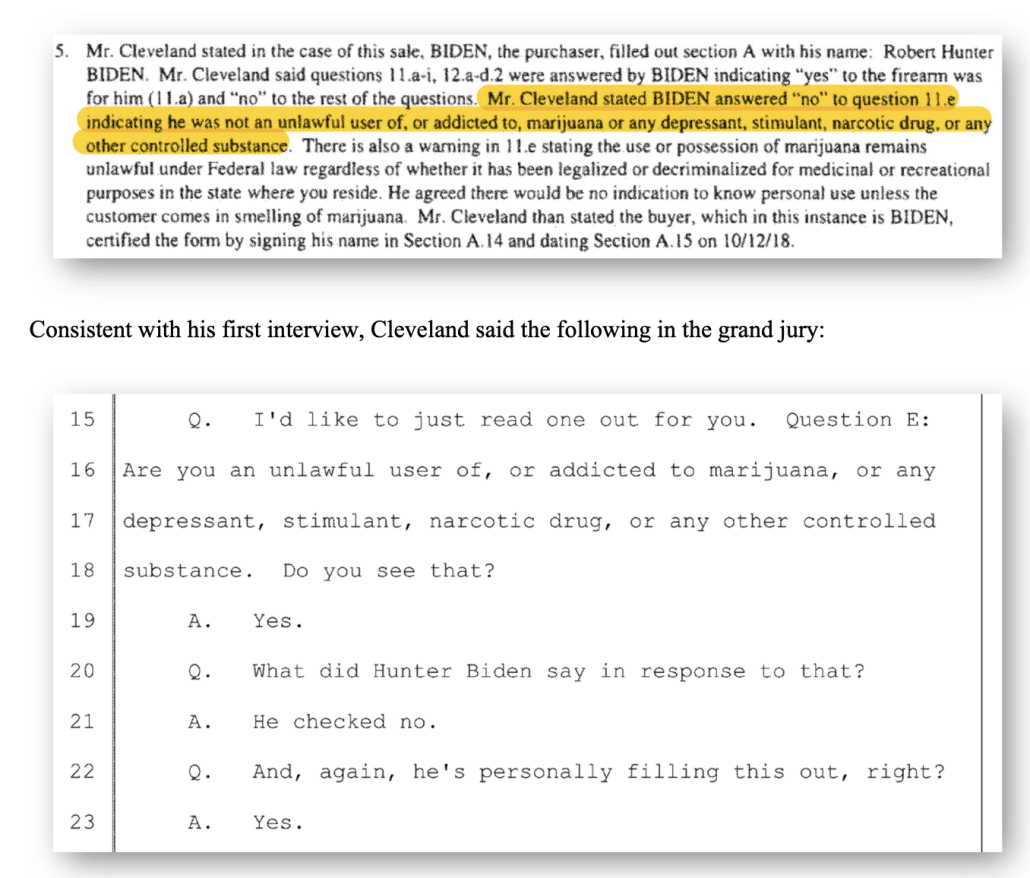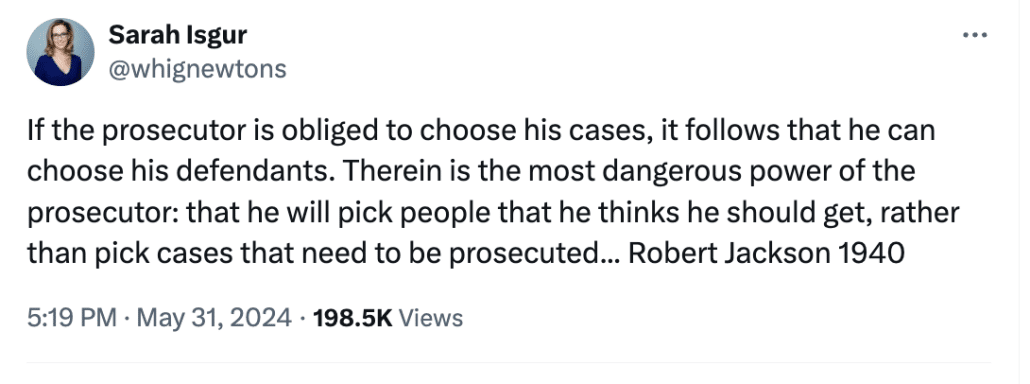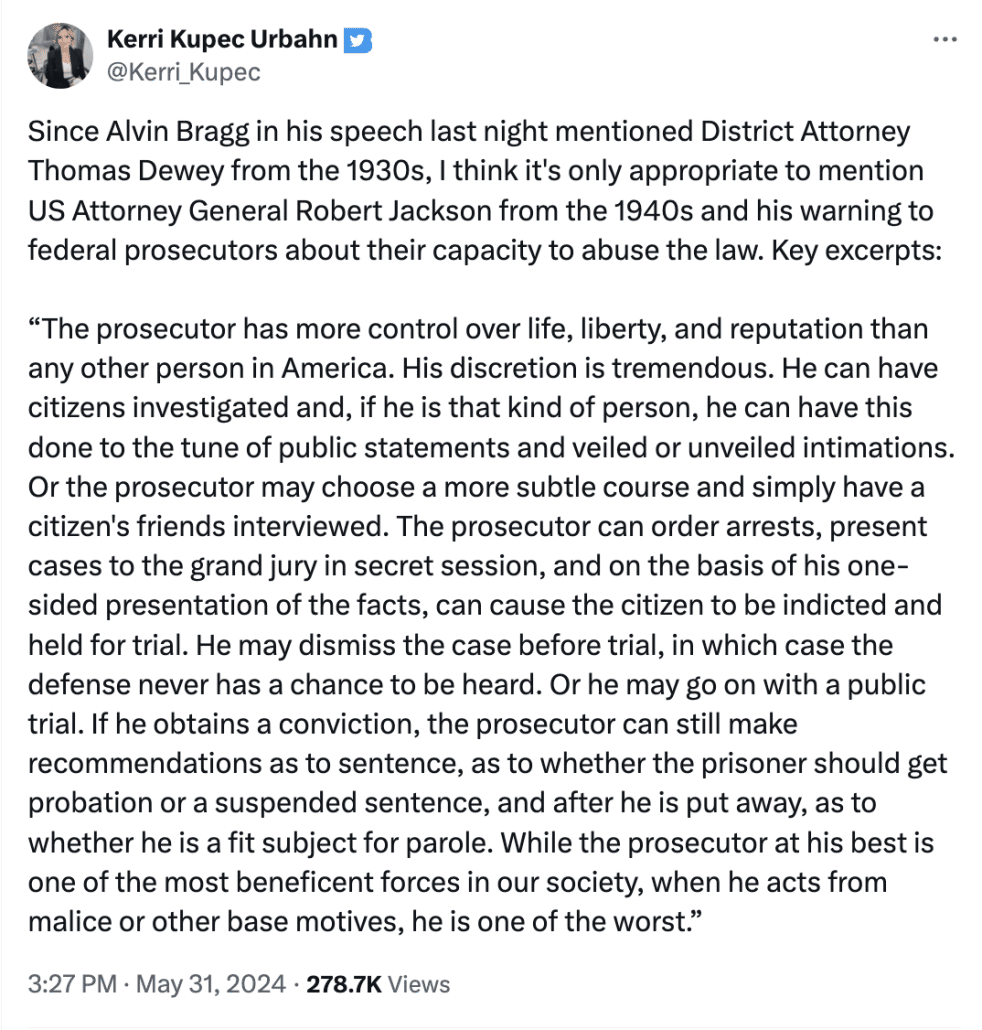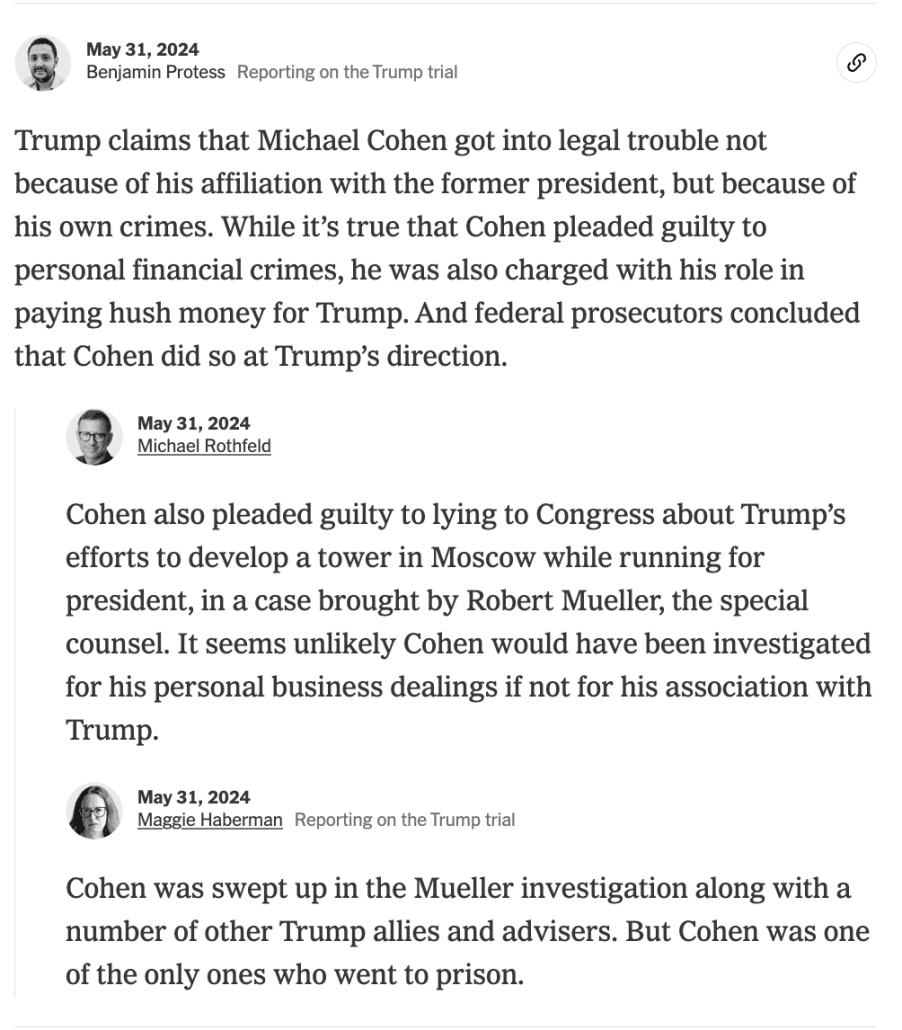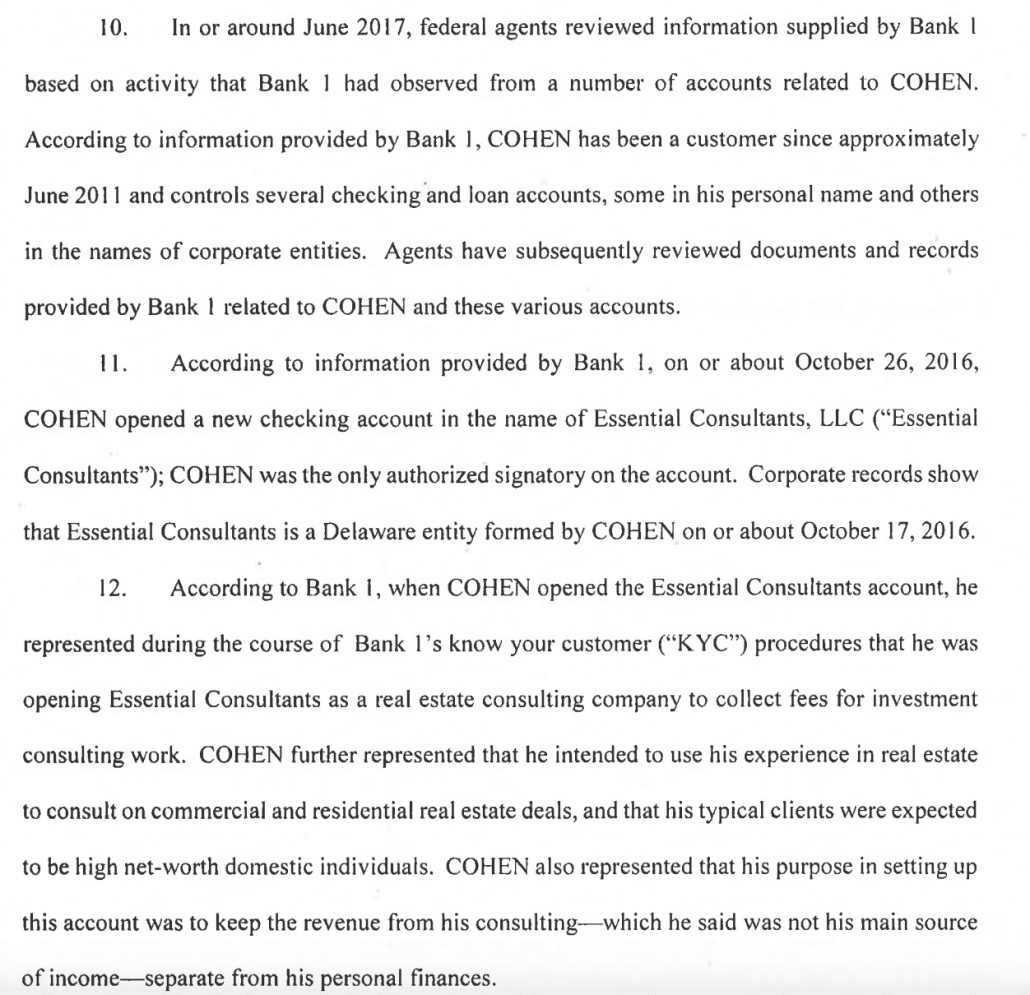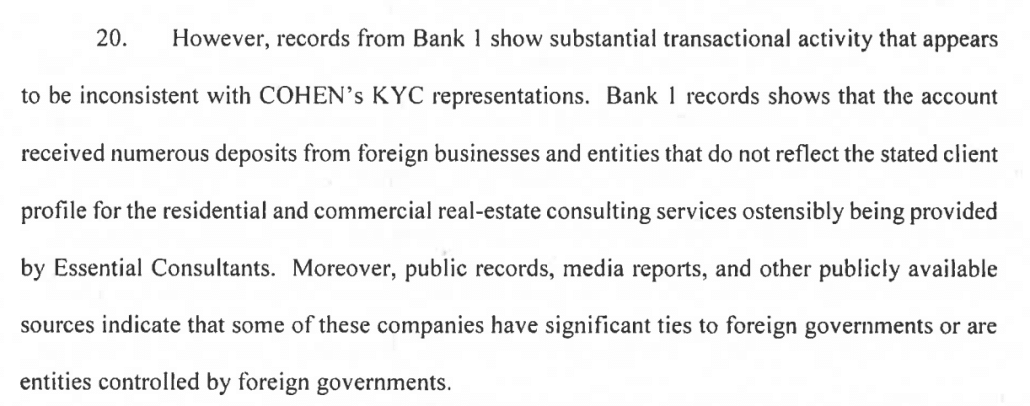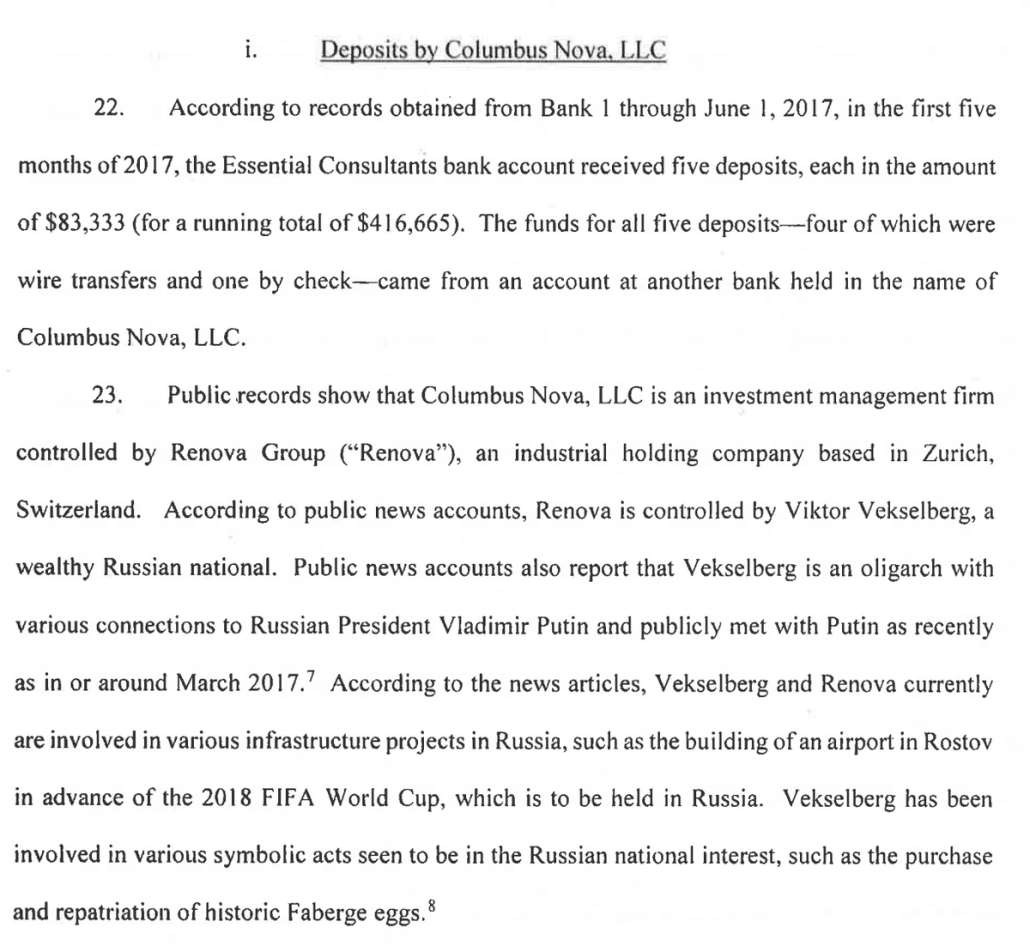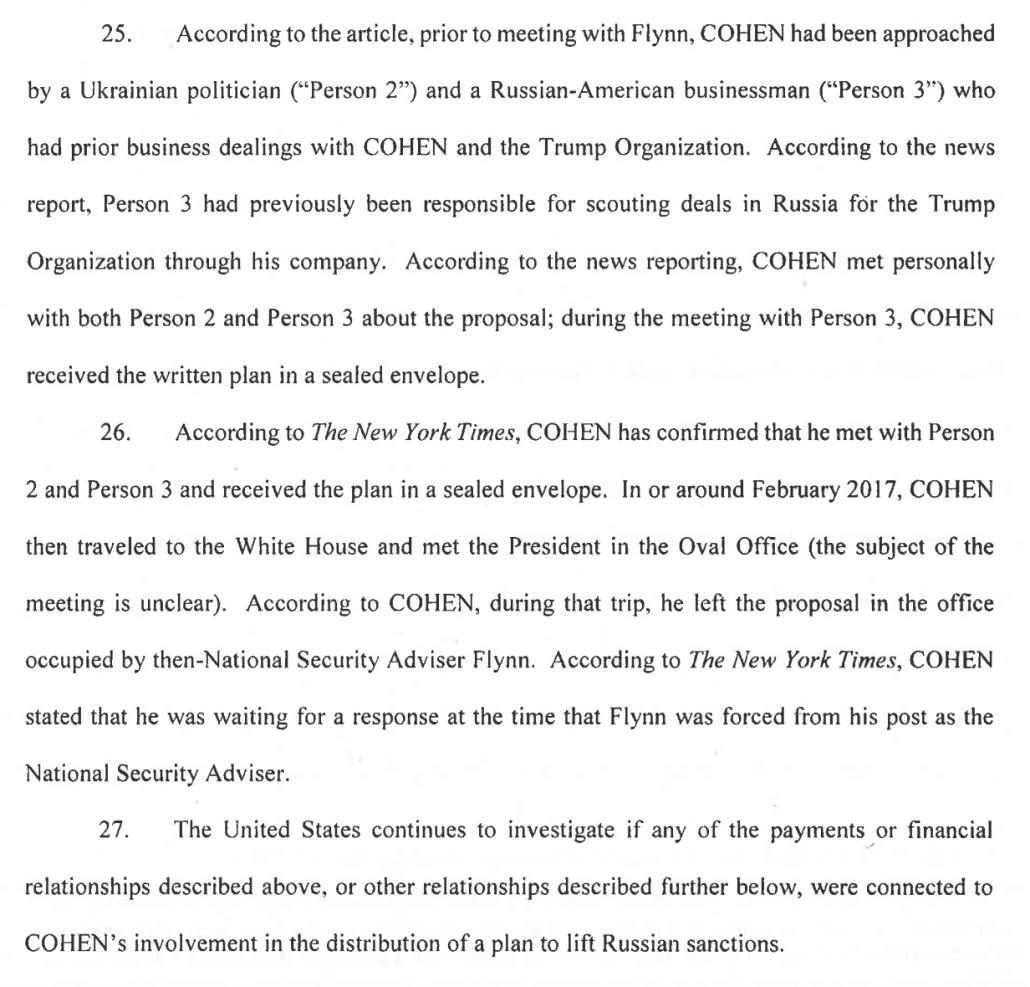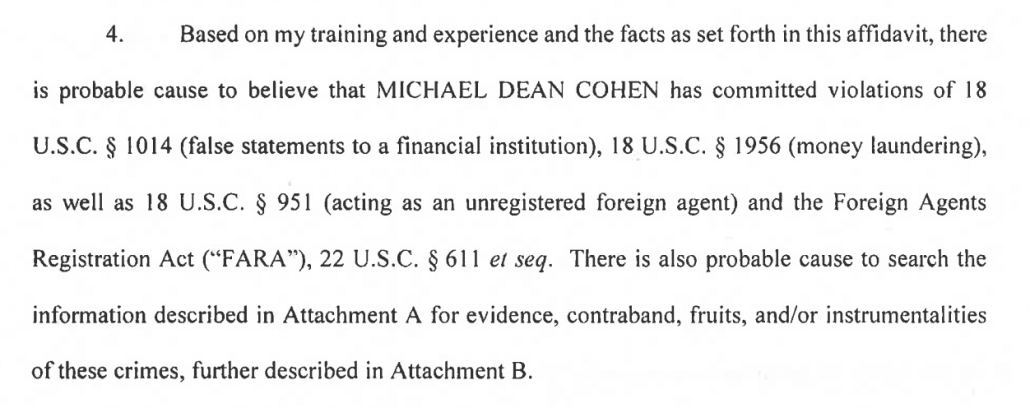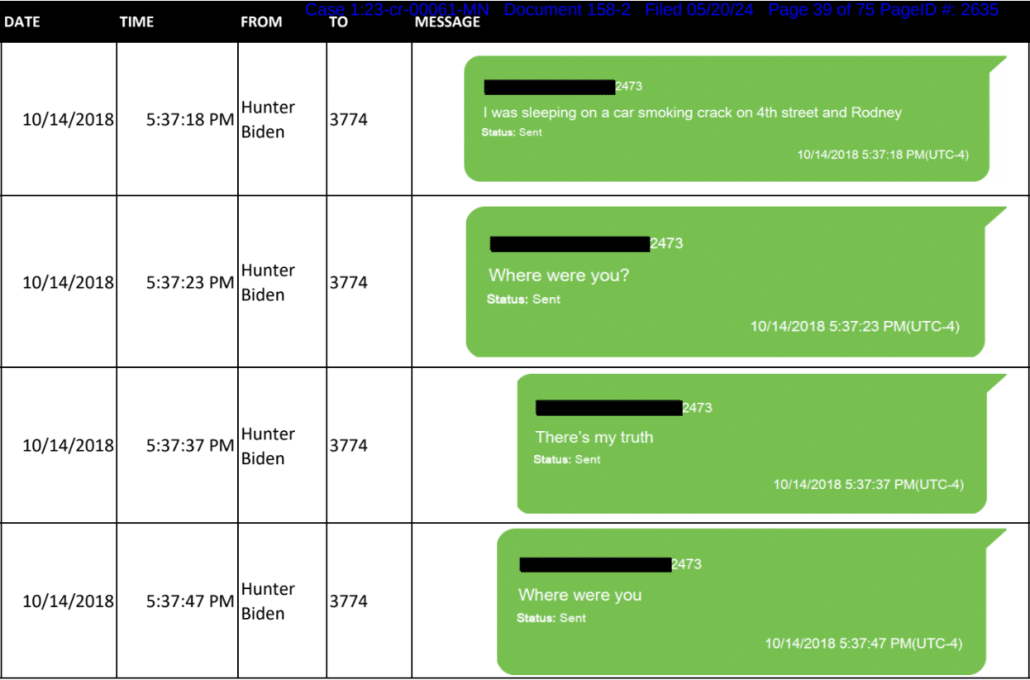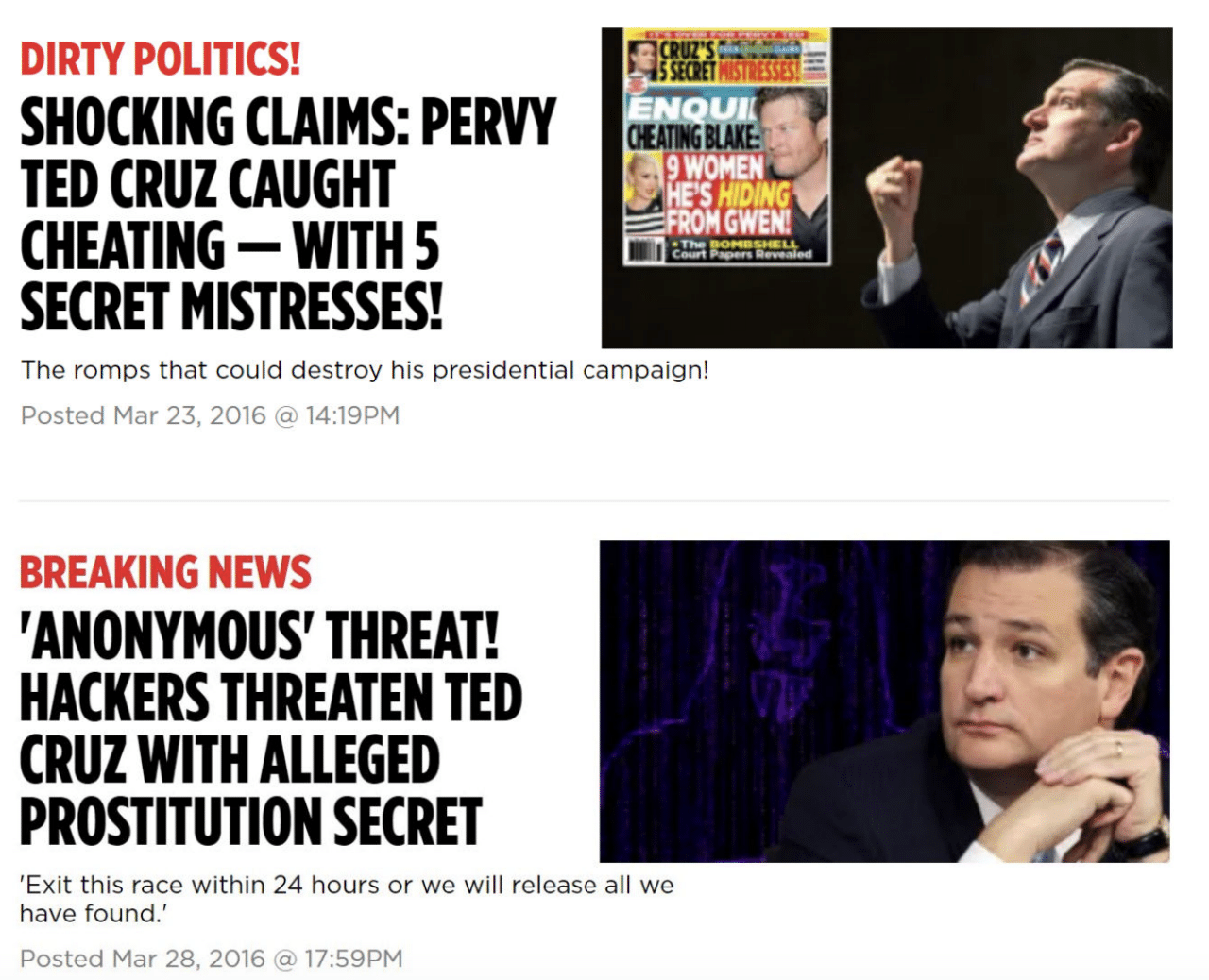Maryellen Noreika Falls for Derek Hines’ False Claims, Again
If I were a newish judge like Maryellen Noreika, I’d be a bit wary about accepting the representations of a prosecutor like Derek Hines who once claimed that sawdust was cocaine. Particularly when bowing to his request to exclude the original form from a trial about whether Hunter Biden lied on that form.
My post yesterday describing that Judge Noreika had prohibited Hunter Biden from showing the jury the actual physical form on which he is alleged to have lied was based off Derek Hines’ reply to a supplemental response that Abbe Lowell filed on Saturday — but the supplement was still sealed.
So when I suggested that Noreika may have credited as accurate something Hines said, I was just basing that off the fact that every time Hines wails about Abbe Lowell lying, it has turned out that he was covering something up.
Noreika likely credited something misleading Derek Hines said in a reply posted shortly before her order which cites to it (he has, repeatedly, projected his own inaccurate claims onto Abbe Lowell, and this may be an instance where, at the very least, Hines misunderstood a reference Lowell made).
Hines made a big stink about a bracketed reference to “a second form of identification” that Lowell had included in a quote from a 302 recording either one (if you believe Hines) or two (if you believe Lowell) interviews of Gordon Cleveland, the guy who sold Hunter Biden the gun, in 2021.
Cleveland has been entirely consistent on the issue of identification in the two interviews where it came up. Defendants claims he has offered an “evolving story,” but that characterization is not accurate based on defendant’s own quotes from Cleveland’s Jencks material. Supp. Resp. at 5. The only form of ID Cleveland saw was the passport. He never saw a Delaware vehicle registration and never claimed to. Instead, in both interviews he stated that Turner, who handled the background check, may have, but Cleveland didn’t have first-hand knowledge of whether he did or didn’t. In his first interview on September 27, 2021, Cleveland told investigators:
“He said he would provide the copy of the U.S. Passport and the firearm information on a sheet of paper to the person sending the background check in. Mr. Cleveland said he did not see the document [a second form of identification] with the ATF Form 4473 he was shown [by the Agent on September 27, 2021].” (TAB 3, 10/12/21 ATF EF 3120 at 2, ¶6) (emphasis added). Supp. Resp. at 5 (emphasis added).
The government at this point is obligated to point out that the defendant is again making malpresentations to the Court. In the above quote from his filing, the defendant inserted brackets into a real quote from the September 27, 2021, interview report for Cleveland. The defendant writes in those brackets that “Mr. Cleveland said he did not see the document [a second form of identification] with the ATF Form 4473 he was shown [by the Agent on September 27, 2021]. Supp. Resp. at 5. What defendant inserted into those quotes in brackets isn’t accurate. The ATF never showed Cleveland “a second form of identification.” If you look at the report, which defendant has and attached to his filing, it says that the only documents that were shown to Cleveland, at any point during the interview, were the following:
The ATF did not show Cleveland “a second form of identification,” as the above list of documents make clear. Defense counsel made that up. [Hines’ bold, Lowell’s italics]
Then Derek Hines accused Lowell of deliberately leaving out part of the 302: Cleveland describing that his colleague, Jason Turner, may have gotten a second form of ID.
What defense counsel chose not to quote from that report was the next sentence: “He said Jason Turner may have gotten the vehicle registration due to the U.S. Passport issue.”
Lowell’s supplemental response got docketed overnight. And it makes clear that (as I predicted), Hines is the one misrepresenting things and leaving pertinent quotations out.
The contested quotation comes in a passage where Lowell lays out inconsistencies in Cleveland’s story.
Cleveland (a government witness) sold Biden the handgun on October 12, 2018 and gave him the 4473 form to fill out. Yet, as to what was and was not on the form, who completed it and when, Cleveland offers divergent explanations at different points in time.
Cleveland was interviewed by ATF Agent Hnat on September 27, 2021, just six days after the actual Form 4473 (with additions) was obtained by ATF, and again on October 7, 2021. The interview notes reflect:
Speaking of his general practice he said, “He then gathers the information provided by the customer for the background check, the customers two forms of identification . . .” (TAB 3, 10/12/21 ATF EF 3120 at 1, ¶2).
With specific reference to Biden, “He said he would provide the copy of the U.S. Passport and the firearm information on a sheet of paper to the person sending the background check in. Mr. Cleveland said he did not see the document [a second form of identification] with the ATF Form 4473 he was shown [by the Agent on September 27, 2021].” (TAB 3, 10/12/21 ATF EF 3120 at 2, ¶6) (emphasis added).
Now being shown the added information, “He said Jason Turner may have gotten the vehicle registration due to the U.S. Passport issue.” (TAB 3, 10/12/21 ATF EF 3120 at 2, ¶6).
Later, under oath before a grand jury in April 2022—months after the altered Form 4473 was obtained and after he was shown it on September 27, 2021—Cleveland was asked no questions about the identification issue, the added registration information, or the two forms. (See TAB 3A).
But after issues concerning the different versions of the form were raised at the May 14, 2024 status conference, the Special Counsel went back to Cleveland and this is what was explained:
When Biden presented his passport as identification, Cleveland went into the back and asked Ronald Palimere and Jason Turner if it could be used. Cleveland recalls going back out to Biden and saying something to the effect that if Biden was going to use a passport, they would need another form of identification. [] Cleveland thinks Biden went outside and got something, but he can not say with certainty. Cleveland would not have paid attention to the paperwork side of the sale because he had already done his part by working with the customer and making the sale. Cleveland does not think they would have competed the sale without the second identification, though. (TAB 3B, 5/17/24 Cleveland FD-302 at 1).
Thus, even with Cleveland’s evolving story, he cannot say that Biden presented the vehicle registration, but simply assumes that someone else at the gun store would have obtained a second form of identification. Biden should be allowed to challenge this assumption that the gun store would have followed the law in obtaining a second form of identification. [Lowell’s italics, my bold]
As a threshold matter, Hines either lied or is painfully sloppy. Lowell did include that quotation about Turner. It’s right there, on the next line, precisely where Hines said it should be!
I asked Weiss’ spox whether Hines’ false accusation was a lie or just sloppiness (I also asked him to clarify whether Hines got the number of Cleveland interviews wrong). He responded, “As this case is before the court, we will decline to comment beyond our filings.”
But what Hines didn’t include is the context (and here, I do fault Lowell for not indicating whether the 302, which he describes as recording two interviews, distinguishes between what Cleveland said on September 27 and what he said on October 7; also he’s the one who put that bracket in the quote that simply reflects a paragraph break).
Line one: What do you normally do? Cleveland: I ask customers for two forms of ID.
Line two: Did you do that with Joe Biden’s kid? Cleveland: Nope. I didn’t see any second form of ID.
Line three: Well then, who added the second ID to the form? Cleveland: I dunno. Maybe Jason did it?
Right there, Cleveland has already undermined his own testimony, making it clear that (he claims) he always gets two IDs, but then admitting he didn’t here.
And in context, that “second form of ID” refers to the previous line (that’s called an antecedent, Mr. Hines, look it up! You’ll be amazed how grammar works!!).
It’s clear to anyone who knows how to read that Lowell was not referring to what the ATF agent showed Cleveland. It refers to what Hunter did or did not show Cleveland back in 2018. But Hines left it off, perhaps because it would undermine his false accusations?
The rest of the story Lowell’s filing tells is just as interesting. He reveals that the cop who first went to the grocery store to search for the gun in 2018, Vincent Clemons, coordinated his story with the gun shop owner.
[T]he government provided WhatsApp communications from October 2020 and February 2021 between Palimere, friends of his, and then-Delaware state trooper Vincent Clemons3 (see TABs 6 – 6C), all of which refer to the form, a plan to send it to others, needing to get their stories straight about what occurred in 2020, and wanting the gun sale issue and the form exposed during the Presidential campaign.
3 Not to be lost is the fact that Clemons was the Delaware State Police officer who first arrived at Janssens’ grocery store on October 23, 2018 when Hallie Biden threw a bag containing the handgun into a trash can in front of the store. It was Clemons who took statements about the handgun from both Hallie and Hunter Biden and was part of filling out an official police report on the issue. Two years later, he is in the communications with Palimere about the Form 4473, one of which states: “Yep your side is simple – Hunter bought a gun from you, he filled out the proper forms and the Feds approved him for a purchase.” (emphasis added). Palimere later responded, “I’ll keep it short and sweet as well: Hunter bought a gun. The police visited me asking for verification of the purchase and that’s all I can recall from that day. It was over 2 years ago.” (TAB 6B, 10/26/20 Palimere-Clemons Texts at 4, 6.) The reference to filling out the “proper forms” is not lost on defense counsel given what transpired thereafter. And, despite the importance of Clemons (e.g., the person who actually took the statements), the Special Counsel is foregoing him as a witness to call two other Delaware officers instead.
[snip]
Moreover, it turns out that profiting off an improper gun sale was not the gun shop’s only motive. The gun shop staff recognized Biden and the newly-disclosed evidence from the Special Counsel shows the store’s owner sought to politicize the sale to influence the election, which provides further evidence of bias.
Hines capitalized on Lowell’s mention of the election and Parlimere’s effort to politicize the purchase by presenting this description of a cop and a gun owner coordinating the story they plan to tell as exclusively political.
Among the items the defendant emailed to the Court on Friday night were proposed exhibits – identified as defense tabs “6,” “6A,” “6B,” and “6C” – which suggest that two witnesses are politically motivated. These selected portions3 of communications by Palimere to two friends and also to Sgt. Clemons – were made two years after the events in question when defendant’s father was a political candidate. The defendant inaccurately summarizes them as referring “to the form, a plan to send it to others, needing to get their stories straight about what occurred in 2020, and wanting the gun sale issue and the form exposed during the Presidential campaign.” Supp. Resp. p. 8 and n. 3. Nevertheless, he clearly wishes to confuse the jury by introducing these spliced, non-relevant communications to incite prejudice and emotion among the jury to distract from the elements of the crimes that were complete years before.
Thanks to this latest filing, the defendant’s strategy is now more apparent. He has returned to a claim that this prosecution was trumped up and politically motivated. But to suggest that the gun store owner’s political opinions, expressed two years after the fact, have bearing on whether or not he lied about his drug use on the form 4473 on Section A is absurd and must be excluded under the rules of evidence. There is no evidence to suggest these communications played any part in the witnesses’ actions or inactions with respect to the defendant. And there is no evidence that the defendant was the target of political animus by either witness.
The fact that witnesses in this case held political beliefs about which they communicated two years after the defendant’s alleged crime cannot possibly have any relevance to any fact at issue. The defendant should therefore not be permitted to present irrelevant, confusing and unduly prejudicial facts regarding witnesses’ political views to the jury. See Fed. R. Evid. 401, 402. Even if the communications were somehow relevant – and they are not – such evidence is unduly prejudicial to the government. Courts have excluded evidence at trial of a witness’s bias under Fed. R. Evid. 403 where admission would confuse the issues before the jury. E.g., Blair v. United States, 401 F.2d 387, 390 (D.C. Cir. 1968) (affirming trial court’s conclusion that the probative effect of the impeaching evidence was far outweighed by the potential prejudice)
That may be enough to get texts showing a cop working on a cover story; Judge Noreika cut and pasted Hines’ language treating these as political, and ruled that Lowell can’t raise politics at all, even though the gun shop owner says he rushed the sale to get Hunter out of the shop because his dad is anti-gun.
But it has me wondering something that Lowell apparently is also wondering.
He learned that Cleveland claimed that he always asks for a second ID because Hines just turned over the earlier 302 and Cleveland’s grand jury testimony, from April 2022, as Jencks. It seems that prosecutors may have provided these WhatsApp texts in response to a request for Brady, after Lowell started looking into the altered document.
But they haven’t provided any earlier interview reports from Ronald Palimere or Jason Turner, the latter of whom is the guy who actually altered the gun form.
2 Because the Special Counsel intends to call only Cleveland as a witness, but likely interviewed and has interview memoranda by other law enforcement who interviewed Palimere and Turner, the Special counsel produced only Jencks material for Cleveland (other than the only recently written FBI 302 of Palimere after the issue was raised at the May 14 status conference). Given the issues raised about the form’s accuracy and reliability, defense counsel believes statements byPalimere and Turner (if they exist) would be Brady material and asked again (after the initial discovery requests in October 2023) for Brady and Giglio material after the May 14, 2024 status hearing and again specifically on May 31, 2024. The Special Counsel has not responded.
It is virtually certain there is at least one earlier interview with Palimere, because Derek Hines began the interview by “remind[ing] Palimere of of the provisions of the proffer agreement,” rather than explaining them as if for the first time.
So … it gets worse, probably.
Nevertheless, Judge Noreika not only cut and pasted Hines’ exclusion of all discussion of politics, but she also parroted Hines’ mockery that someone might shade their testimony to protect their own immunity. (This entire footnote will be ripped to shreds if Hunter Biden has to appeal this case.)
The government has stated that it intends to call Gordon Cleveland, a gun shop employee, who will testify that he watched Defendant fill out Section A of the Certified Form and that Defendant checked “no” to question 11e about being an unlawful user or addict. Both the Certified Form and the 2021 Form have the same check mark (“X”) responding “no” to question 11e. The addition of “DE VEHICLE REGISTRATION” to a different section of the 2021 Form after the Defendant filled it out does not have “any tendency to make” those two facts, which are “fact[s] of consequence in determining” the charges – that he filled it out and that he said he wasn’t an unlawful user of or addicted to a controlled substance – more or less probable. F.R.E. 401. The Court also agrees with the government that Defendant’s conspiratorial theory about “doctored” forms and currying favor with the government is unsupported rhetoric, which would be prejudicial and confusing to the jury.
This is not a judgement — that the fact that the gun shop altered a form after the fact to make it look like they had followed the law wouldn’t suggest they might do that more regularly — is not one I’d want to be living down for the rest of my career as a judge. Especially not given that with Hines, there’s usually something worse about to drop.

